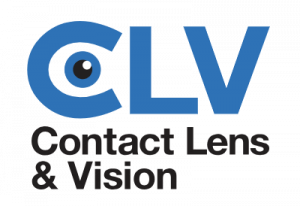If you have diabetes or a family history, your eye health may need special attention. High blood sugar doesn’t just impact your energy or long-term heart health; it can also take a severe toll on your vision.
Conditions like cataracts, glaucoma, and diabetic retinopathy often emerge due to diabetes and may go unnoticed without regular eye exams.
Here’s what you need to know about how high blood sugar can lead to these issues and why early detection is key to preserving your vision. Contact us at Contact Lens and Vision to learn how we can help preserve your vision, even with a diabetes diagnosis.
How High Blood Sugar Affects Your Eyes
Cataracts, or the clouding of the eye’s natural lens, can make it difficult to see clearly, creating blurred vision, glare, and difficulty with night vision. High blood sugar can accelerate the formation of cataracts, even in younger people with diabetes. This happens because sugar molecules and byproducts can collect in the lens, disrupting its clarity over time. Fortunately, cataracts can be treated with surgery if necessary, but early diagnosis is crucial to managing the condition and maintaining good vision.
1. Cataracts and High Blood Sugar
Cataracts, or the clouding of the eye’s natural lens, can make it difficult to see clearly, creating blurred vision, glare, and difficulty with night vision. High blood sugar can accelerate the formation of cataracts, even in younger people with diabetes. This happens because sugar molecules and byproducts can collect in the lens, disrupting its clarity over time. Fortunately, cataracts can be treated with surgery if necessary, but early diagnosis is crucial to managing the condition and maintaining good vision.
2. Glaucoma: A Silent Threat to Vision
Glaucoma is a group of eye diseases that can cause optic nerve damage, often due to increased pressure within the eye. In individuals with diabetes, the risk of glaucoma doubles. Over time, high blood sugar can cause the drainage system in the eye to clog, raising intraocular pressure. This can stress the optic nerve and gradually lead to vision loss. Since glaucoma often presents no early symptoms, regular eye exams are essential for detecting increased eye pressure and taking preventive action.
3. Diabetic Retinopathy: A Leading Cause of Vision Loss
Diabetic retinopathy is one of the most common complications of diabetes and a leading cause of blindness in adults. This condition develops when high blood sugar damages the small blood vessels in the retina, causing them to swell, leak, or grow abnormally. In its early stages, diabetic retinopathy may not show symptoms, but as it progresses, you may experience floaters, blurred vision, or even dark spots in your visual field. Without treatment, it can lead to severe vision loss or blindness.
One key form of treatment, laser therapy, can help seal or shrink damaged blood vessels in the retina. Treatments such as medication injections or surgery may be necessary for more advanced cases. However, the best approach is to prevent severe diabetic retinopathy by keeping blood sugar levels within a healthy range and getting regular eye checkups to detect any changes in eye health early on.
Protecting Your Vision: The Importance of Regular Eye Exams
The effects of high blood sugar on eye health highlight the importance of regular eye exams for anyone with diabetes or at risk for the disease. At Contact Lens and Vision in Woodbridge, we understand the impact diabetes can have on your eye health and offer comprehensive eye exams designed to catch early signs of diabetic eye disease.
During a diabetic eye exam, your eye doctor will:
-
- Check for signs of diabetic retinopathy by examining the retina for damaged blood vessels or new growths.
- Measure intraocular pressure to assess glaucoma risk.
- Inspect the lens for cataracts that may have developed prematurely due to high blood sugar.
- Discuss your eye health history and family background to tailor recommendations based on your unique needs.
- Monitor your blood sugar closely and aim to keep it within the range recommended by your healthcare provider.
- Manage blood pressure and cholesterol levels, which can also impact your eye health.
- Follow a healthy lifestyle, including a balanced diet and regular exercise, which can help keep diabetes under control.
- Avoid smoking, which can exacerbate eye damage and increase the risk of cataracts and glaucoma.
These exams are essential to detect diabetic eye conditions before they begin affecting your vision. Early diagnosis allows for timely treatments that can prevent or delay vision loss.
Tips for Managing Eye Health with Diabetes
In addition to regular eye exams, there are a few steps you can take to protect your vision if you have diabetes:
Schedule Your Diabetic Eye Exam at Contact Lens and Vision
If you have diabetes, keeping your eyes healthy is as vital as monitoring blood sugar levels. At our practice in Woodbridge, we offer thorough, compassionate eye care for patients with diabetes and are here to support you in protecting your vision for years to come.
To schedule a diabetic eye exam or to learn more about how diabetes affects eye health, contact us today. With early detection and proactive care, you can maintain clear vision and safeguard your eye health, even with diabetes.
